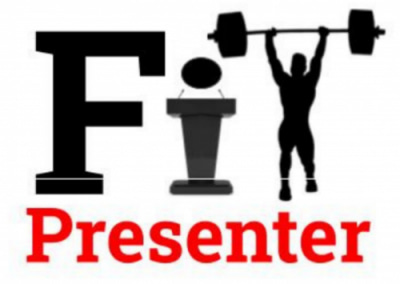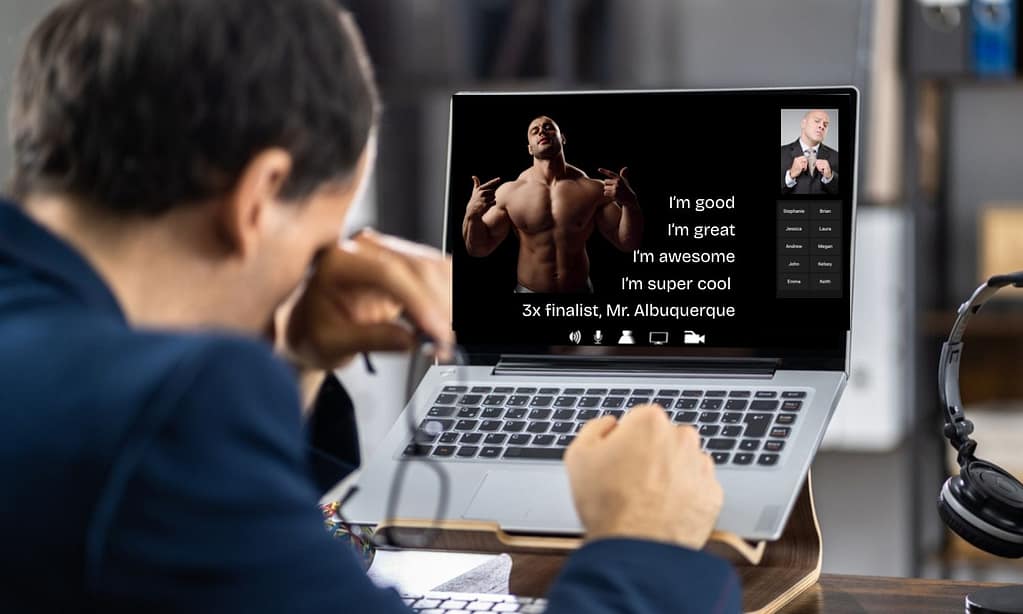Self-promotion or self-adulation?
Would you believe me if I told you that there are big egos in the fitness industry? If so, then you're going to love the story below. Extra kudos if you got the South Park reference in the title of this article.
When you market your business or services, people want to know your credentials. Feel free to tout your education, experience, and accomplishments in your marketing materials. However, too much self-promotion can lead to self-destruction.
Here’s a story of a trainer who thought that she held the key to success by elevating herself above her clients.
The event
The leader of a local online meetup group called our training studio, asking us to host their Biggest Loser inspired weight-loss challenge. For three months they would do outdoor activities together, go grocery shopping, and use our gym to weigh in every Saturday morning.

We hosted the kickoff event, only to find out that the group had hired another trainer to lead the challenge. We were just patsies to set up the facility. We could have raised a fuss and canceled the event, or we could serve up a cold dish when the time was right.
Showtime!
The starlet trainer opened the session by reading off of her cue cards, introducing herself and that she was, "um, very excited … to be here … " in a series of crescendos that said she was anything but excited.
She then treated the group to a promotional flyer of herself in a bikini, and handed them off to contestants who weighed as much as 300 pounds.

We learned about her work history and how those six-pack abs show off under certain light, but nothing about what she could do for the clients.
The group leader took over to outline the schedule, and then it was our turn. I knew from years of giving and attending seminars that people remember most what they hear last.
Payback time
"Allow us to welcome you to [name of studio], and to wish you luck over the next three months," I said. "Personally, I've never seen the show the Biggest Loser, but we see that show here every day."
I proceeded to tell a quick anecdote about a client who recently allowed herself to be photographed for the first time in five years after training with us for a short time.

We closed the show by offering each contestant a free training session to complement their itinerary so graciously designed by the group leader. Everybody in that room signed up with us that night.
We never saw the bikini trainer ever again
Was there any mention of the number of bodybuilding titles I had won? Of course not! I’m not a bodybuilder. But besides that, an even more obvious truth was that my credentials didn’t matter.
Our visiting trainer, to her credit, has since been very successful as a nutrition coach. I’ve seen her on a few daytime TV shows with her unique yet easy to make healthy recipes (I would give her a plug here, but, ah, never mind). What she forgot that night, or maybe didn’t know until we taught her a lesson as hard as her muscles looked in her airbrushed bikini pics, was that you are only as good as what you can do for others.

International Boxing Hall of Fame, squaring off with Carmen Basilio.
And now, the fun part. Let's talk about me!
Have you ever heard a speaker who was introduced with a long line of accolades that you didn’t even know existed? Then they begin with a PowerPoint slide recapping the same information. That intro tells the audience one thing -- the speaker has nothing else to offer.

Leave a few in the tank
It’s tempting to let loose and showcase every certification, award, and little league trophy you’ve ever earned in order to win their confidence. If I can offer one bodybuilding tip, leave a few in the tank. Seasoned muscle builders will resist the urge to put all of their effort into one set, and put the weights down so that they can do another full set a minute later.
The same rule about pacing yourself in the gym applies with your clients or your audience. When you share your credentials, you have a choice. You can blast everything at them for the sake of self-fulfillment, or you can slow play your self-disclosure so that your most important attributes seem ordinary to you.
Either way, your credentials do not last in people’s minds. The only thing that matters is the results you can offer your clients.

Q & A
Any achievements that you omit from your introduction can secretly make their way to the question and answer session. This is when the audience engages you in dialog, and your answers are more succinct.
If an audience member asks a question about distance running, that is the best time to casually mention that you have run 16 marathons in your lifetime (hmm … where did I come up with that number?). You restate your credentials into the context of their problems.

And now, the plug
In the FIT Presenter speaking kit, you will see a page where you list your credentials. There are some things that your client needs to know immediately. Your current certification and tenure at the gym are your base qualifications to show that you belong there.
If the clients are looking for specialized trainers for high level performance (and let’s be honest, they’re usually not), then you can list if you have an advanced certification with a certain type of equipment or training method. Any time you list anything beyond the basics, you are now selling yourself and pushing yourself on the client.

Nobody wants a pushy seller, either on the gym floor or on stage. So follow the advice of a distance runner who has run 16 marathons and pace yourself when delivering your message and when sharing credentials.















